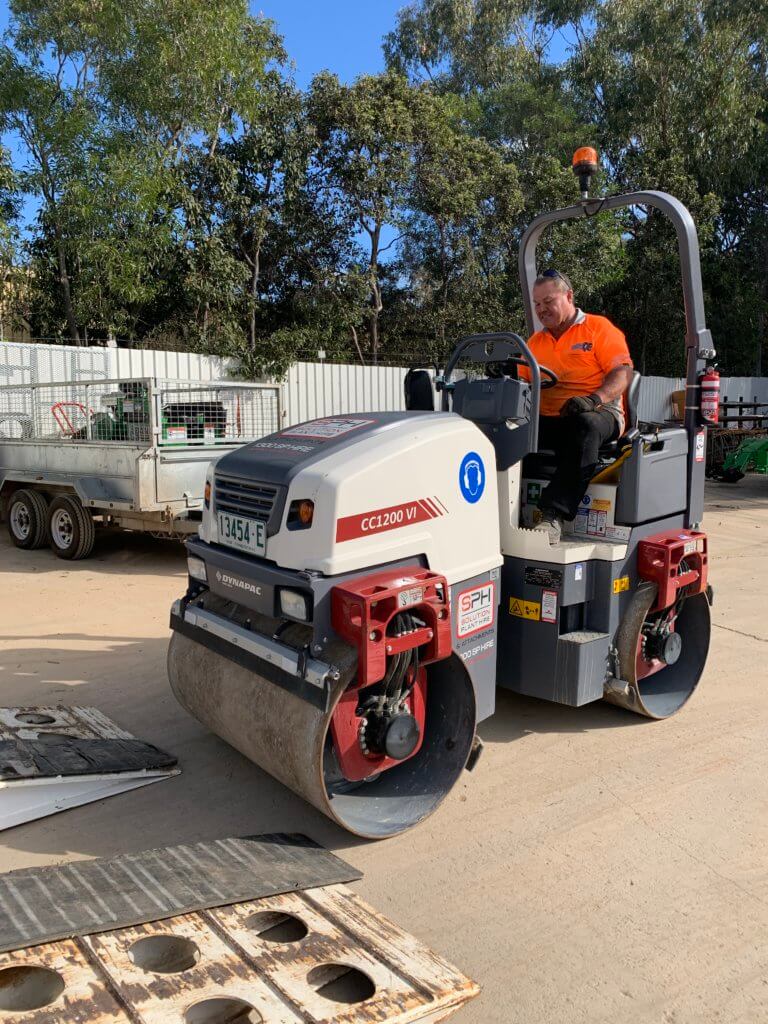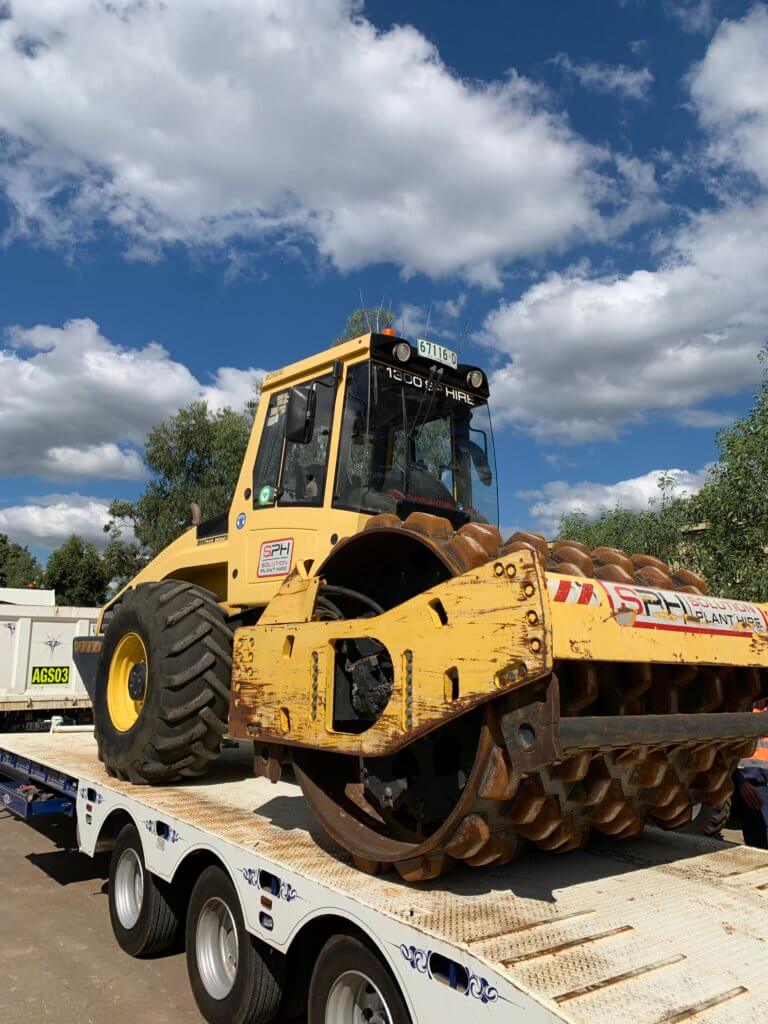Rollers are used to distribute, flatten and compact materials, with the end goal of creating a flat and even surface. They’re most commonly used to prepare an area where you need to lay foundations or other paving materials. By compacting the soil with a smooth drum or padfoot roller, your surface area will be free from imperfections and uneven terrain, which could wear and damage new construction work. This process has the added benefit of strengthening ground soil so that it can support heavy loads.
Two of the most common types of rollers used to prepare soil are smooth drum rollers and padfoot rollers. Below, we explore the differences between these two machines as well as their intended purposes.
Smooth Rollers

Smooth rollers have one or two large steel drums that compact ground materials ready for further work to take place. Single and double drum rollers are ideal for tasks involving coarse, granular and mixed soils of up to 50% cohesive soil content. Applying a combination of static pressure, impact and vibration, these machines were among the first to use vibratory compaction. This mechanism forces the soil particles to arrange themselves in size order, resulting in a more tightly compacted surface.
Single-drum smooth rollers feature one large drum located at the front of the machine; the rear is supported by two tires. While single-drum rollers afford the operator greater traction, control and manoeuvrability, they can lack the amount of force generated by a double drum roller. Double drum smooth rollers switch out the rear tires for a secondary drum, which delivers greater power and compaction for heavy-duty work. However, with no rear tires, the operator has less control and traction when compared to a single-drum roller.
Padfoot Rollers

Padfoot rollers are designed in a different manner and are often called “Sheepsfoot rollers”. Operating in much the same way, a padfoot roller’s main difference lies in the design of the steel drum, which is not smooth. Instead, serrated protrusions, or “scrapers”, are embedded in the steel plate, offering greater compression depth.
These textured protrusions have a better effect on silty materials, as the roller can move across the ground without sticking to adhesive surfaces. They also apply a more considerable degree of force wherever they connect with the ground, using a vibrating and kneading effect to compact the soil. This “kneading” mechanism, known as manipulative force, is something that cannot be achieved with a smooth roller. Surfaces flattened with a padfoot roller can offer greater structural support as a result of more tightly compressed soil, which has greater load-bearing properties.
What Type of Roller Do You Need?
A smooth roller can handle your typical construction or roadwork task in most cases. A single-drum smooth roller can tackle tasks such as footpaths, driveways and building foundations. They work best on granular surfaces, such as gravel and sand. However, for softer ground or jobs that include car parks and playgrounds, for example, you’ll want to consider a padfoot roller.
Padfoot rollers can handle dense clay and cohesive soil well, but they’re less suitable for sandy surface types. On this kind of unstable surface, you can end up tilling the ground rather than compacting it if you use a padfoot roller. You should generally choose a padfoot roller if you’re going to be working with materials that have high water content. This might include ground comprising clay or mud, such as ponds and reservoirs with high silt content.
The Benefits of Smooth Drum and Padfoot Roller Hire
Padfoot and smooth drum hire can be a vastly more cost-effective way of achieving the results you need. However, larger rollers are fairly expensive machines, and justifying that cost can be difficult, particularly if you’re completing a one-off task. It’s not just the upfront investment that matters either, as rollers require regular maintenance that can quickly mount up.
Choosing to hire a padfoot or smooth drum roller means that you won’t have to worry about a steep purchase cost or ongoing maintenance fees. Solution Plant Hire stocks a range of smooth drum and padfoot rollers, plus multi-tire and trench rollers. Covering the East Coast of Australia and with locations in Brisbane, Canberra, Melbourne, Newcastle, Sydney, Toowoomba and Wagga Wagga, our roller hire service is operated on a dry-hire basis.
Ranging from 2 tonnes to 19 tonnes, our rollers are regularly maintained, fully compliant with any and all site regulations, and come with all necessary paperwork completed. Our rollers also have compact designs, making for easy transport, and include a range of safety features, such as warning horns, backup alarms and emergency stop features.
If you’re ready to discuss options or need further advice on the best tool for the job, contact Solution Plant Hire for a quick and free quote today. Alternatively, you can complete our quick quote form.